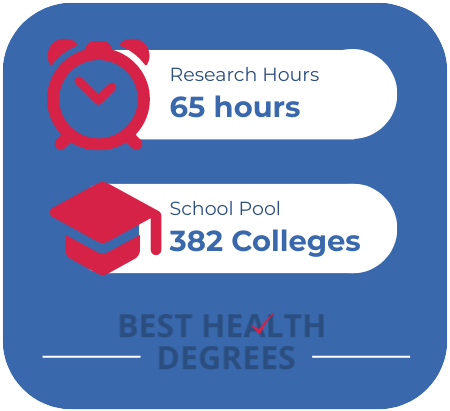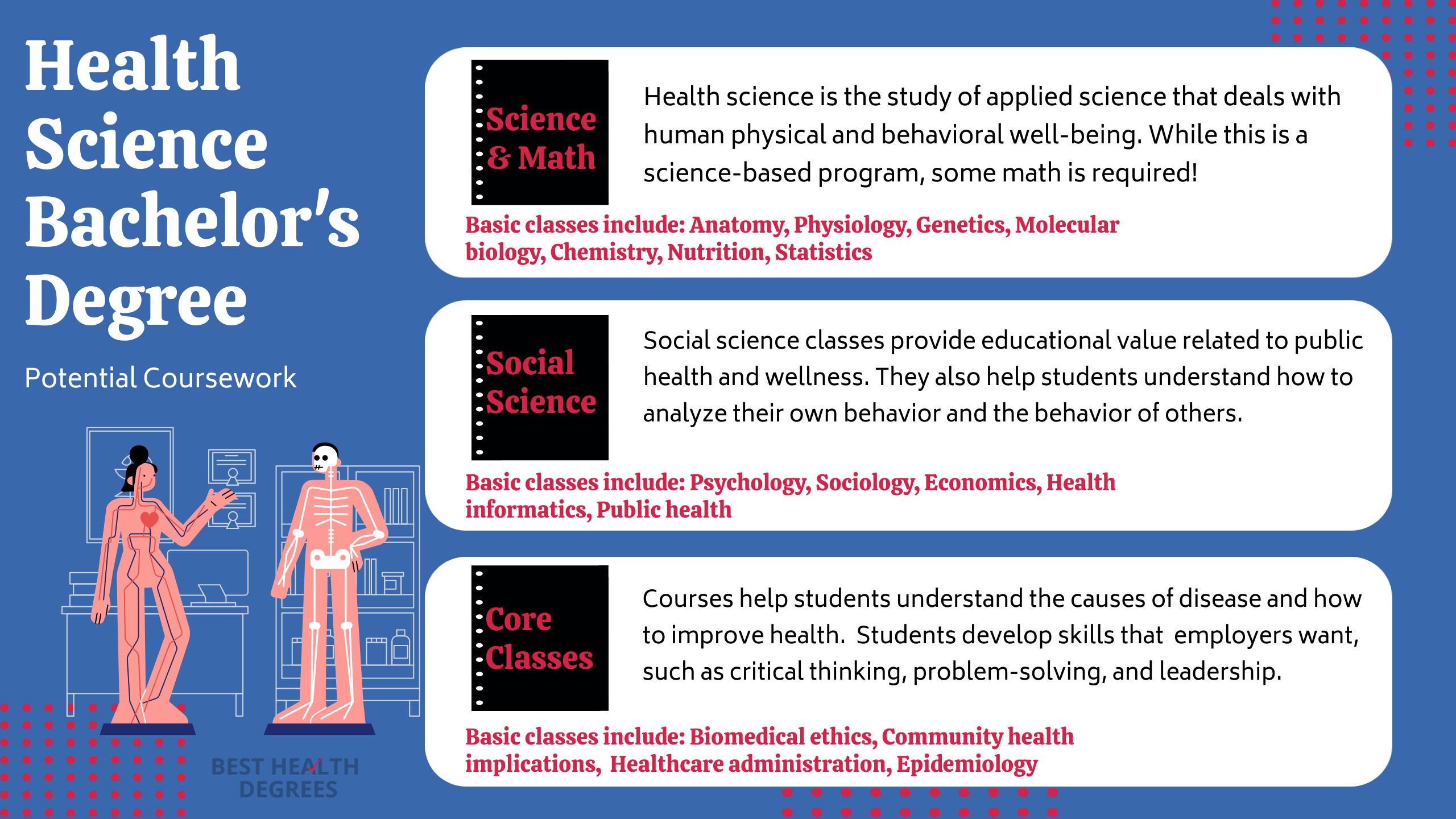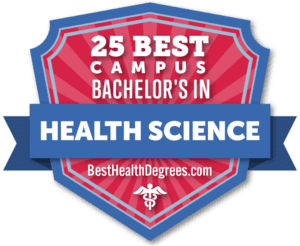
Key Takeaways:
- Schools like the University of Florida and California State University have some of the best BSHS programs in the nation.
- BSHS degree programs offer a range of specializations and prepare students for various health science careers.
- These programs typically require core science courses and specialized tracks, and may include internships or co-op opportunities.
- Top BSHS programs are accredited, and many qualify for Federal Student Aid, helping manage education costs.
- Careers with a BSHS degree are diverse, ranging from clinical roles like radiation therapist to non-clinical positions in health administration, with good job growth and salaries.
Best Health Degrees has reviewed multiple on-campus Bachelor of Health Science (BSHS) degree programs to identify some of the best in Health Sciences in the US. The best health science colleges are accredited and, if you qualify, offer Federal Student Aid as well. This ranking provides you with a starting point in your school search for the top schools for health science and offers you a snapshot of what the programs offer.
Our analysts first ranked the best colleges for health science degrees in August of 2022. It was last updated in December of 2023.
Our Method: Ranking the 25 Best Colleges for Health Science Bachelor’s Degrees
To rank the 25 Best Health Science Bachelor’s Degrees, Best Degrees analysts researched accredited, trusted health science programs. Then we made an initial pool of schools with health science majors, which we ranked programs according to our methodology.
We use data from IPEDS, Niche, and U.S. News and World Report to ensure our data is accurate.
Disclaimer: Cost/Tuition Rate is subject to change.
1. University of Florida
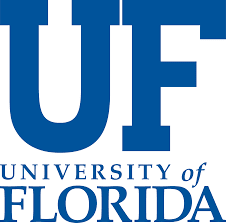
Depending on your healthcare career goals, the BS in Health Sciences (BSHS) program at the University of Florida Gainesville campus, will give you several options.
The College of Public Health and Health Professions offers health science degrees in General Health Science, Occupational Therapy Accelerated, Pre-Physical Therapy, and Preprofessional studies. A general Health Science major would be a good choice if you don’t have a specific healthcare field in mind.
Regardless of the track you choose, you’ll take general education courses and a core curriculum in biological sciences, psychology, and statistics. Each major has specific courses as well as electives. All students will study research methods, diseases and disabilities, prevention and treatment, and the US health care system.
Admission to the UF program requires an application, ACT/SAT scores, submission of academic transcripts, as well as a satisfactory conduct record. Your extracurricular activities, personal essay, academic achievement awards, home community and background will also factor into your admission.
Degree Awarded: BSHS
Learn more here about the Bachelor of Science in Health Sciences!
2. California State University at Long Beach

A BS in Health Science from CSU-LB provides you a choice between Community Health Education or School Health Education studies. Either major will provide you with the tools to educate students and communities on a variety of health issues. This program requires five core studies. Students focus on Program Development, Statistics, Health Services Organization, Professionalism, and Health Promotion.
The degree requires 120 credit hours which includes general education studies. You’ll study biology, physiology, anatomy, statistics, health behavior, risk reduction, school health programs, epidemiology, and other healthcare-related electives. The BS in School Health Education will qualify you to teach in California middle or high schools. The Community Health Education will prepare you to work in a public, non-profit/not-for-profit agency, or a corporate health department.
Degree Awarded: BSHS
Learn more about this bachelor of science in Health Sciences!
3. Boston University
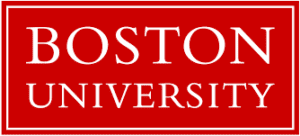
If you have an interest in global public health, the BSHS at Boston University may be just the program for you. The program acquaints students with a variety of healthcare situations as well as prepare you for graduate work in clinical practice, medicine, public health, as well as some non-healthcare fields.
As you would imagine, the 128-credit-hour, curriculum for this degree concentrates on topics such as chemistry, biology, psychology, as well as social sciences. Additionally, studies involve global health issues, statistics, medical ethics, infectious diseases, and an internship. Internships are in the Boston area, or you can choose to do your internship in Dublin or Geneva.
The school also offers an accelerated BS/MS in Public Health which allows you to earn your BS in four years and MS in one. There are various admission options from which to choose. BU is a private research university in the urban center of Boston.
Degree Awarded: BSHS and/or BS/MS
Learn more about the bachelor of science in Health Sciences!
4. University of Texas at Dallas

Here’s a BS in Healthcare Studies with a multidisciplinary approach to healthcare offered through UT Dallas’ School of Interdisciplinary Studies.
This is a 120-credit-hour degree program in which you’ll take core courses as well as foundation courses in chemistry, biology, physics, and psychology. You’ll also study medical terminology, patient communication, disease prevention, etc. The curriculum includes a Health Professions Internship. The design of this degree allows you to customize your studies in unique combinations of coursework.
If you’re interested in continuing on to professional studies in medicine, pharmacy, occupational/physical therapy, dentistry, or other healthcare professions, this program will provide you with an excellent foundation.
UT-D also provides an Academic Bridge Program for first-generation college students who weren’t provided a university-track educational opportunity. The program offers mentoring, advising, and tutoring for students.
Degree Awarded: BSHS
Learn more about this bachelor of science in Health Sciences!
5. Ohio State University
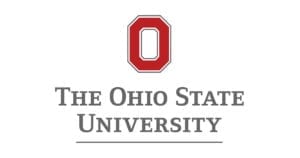
Ohio State University will let you complete your BS in Health Science on-campus or online.
A good choice if you’re wanting a solid healthcare foundation to work in the healthcare field or pursue graduate work, this program requires 121 credit hours for completion. The curriculum is broad and includes studies in healthcare management, healthcare delivery system, Human Resources, life cycles, and more. You’ll also need to choose a minor from OSU (or you may use an associate degree instead).
While not required, OSU encourages you to study healthcare issues abroad or to complete an internship to earn credit as well as valuable healthcare experience. As a health science student, you’ll be qualified to participate in research projects and may even find a paid research assistantship through The Ohio State University Wexner Medical Center.
Degree Awarded: BSHS
Learn more about the bachelor of science in Health Sciences!
6. University of South Florida
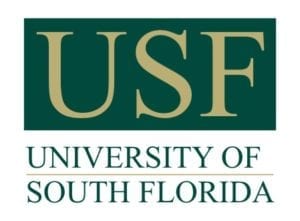
Provided through USF’s College of Public Health, this BS in Health Sciences offers five concentrations.
You can choose from in-demand healthcare area in Biological Health Science, Aging Health Studies, Social and Behavioral Health Science, Health Management, or Health Information Technology.
You’ll begin with required, lower-level coursework in topics such as biology, sociology, math, psychology, communication, biomedical ethics, etc. Each concentration requires 30 credit hours. If you wish, you’re able to choose two concentrations, with each concentration requiring 15 credit hours.
Degree Awarded: BSHS
Learn more about the bachelor of science in Health Sciences!
7. Drexel University

If completing your undergraduate degree in three years appeals to you, the Accelerated BS in Health Science at Philadelphia’s Drexel University, may be for you.
Offered through the nationally renowned, College of Nursing and Health Professions, this BS degree is designed to prepare you for a healthcare career. The degree takes a multidisciplinary approach with studies in social sciences, math, humanities, and more. Among the major courses you’ll study are psychology, public health, scientific research, anatomy and physiology.
There’s also the opportunity to include a six-month co-operative education which allows you to experience healthcare by learning from industry leaders. Several healthcare employers in the Philadelphia region (Children’s Hospital of Philadelphia, NovaCare, Bryn Mawr Rehabilitation Hospital, and others) participate in this co-op experience.
This is a great program if you’re looking for a pre-professional health science degree in medicine, rehabilitation therapy, physician assistant, nursing, etc.
Degree Awarded: BSHS
Learn more about this bachelor of science in Health Sciences!
8. Stockton University

This New Jersey university offers a BS in Health Sciences with a curriculum utilizing the Core Competencies for Interpersonal Collaborative Practice (IPEC).
You’ll have a choice of concentrations with this 128 credit hour degree including general studies, or from Pre-Occupational Therapy (OT), Pre-Physical Therapy (PT), and Pre-Communication Disorders (CD). Community Health Education and Health Administration concentrations are available as is a may want to consider the school’s combined BSHS/MS Physician Assistant program (for freshmen only).
First-year students will need to submit an application, SAT/ACT scores, official high school transcripts, personal essays, and letters of recommendation for admission. Transfer students are required to have a 2.0 GPA, provide academic transcripts from schools attended (including high school), and an application. Other admission material may also be requested.
Degree Awarded: BSHS or BSHS/MS Physician Assistant
Learn more about this bachelor of science in Health Sciences!
9. United States University

USU is located in Mission Valley, CA, and offers a health science program that will prepare you to work in a variety of healthcare settings, developing and instituting health programs.
The BS in Health Science at United States University offers a strong foundation in health sciences as well as three concentrations. You have a choice from Gerontology, Health Education, and Health Services Administration in addition to the core curriculum. Core topics include nutrition, US healthcare delivery system, informatics, strategic management, ethics, epidemiology, and a capstone project among other topics. You’ll also take science courses in anatomy, physiology, microbiology, and statistics.
USU is an accredited, private, for-profit university established in 1997 and is comprised of four colleges.
Degree Awarded: BSHS
Learn more about the Bachelor of Science in Health Sciences!
10. University of Missouri Kansas City

UMKC has a well-rounded, foundational BS of Health Sciences that’s perfect if you want to work in population health, health promotion, or health behavior changes. It also is ideal for pre-professional students wanting a solid basis for professional and/or graduate degrees.
As with all undergraduate programs, you’ll be taking general education courses along with health sciences core subjects. You can expect to take topics in the humanities, math, social and biological sciences, and more. Major course subjects will include, among others, medical terminology, aging issues, quantitative analysis, urban health concerns, global health, and others.
Offered through UMKC’s School of Nursing and Health Studies, this BS program also offers three minors in Public Health, Exercise Science, and Health Sciences.
Degree Awarded: BSHS
Learn more about this bachelor of science in Health Sciences!
11. Furman University

A highly respected school, Furman University offers both a BS in Health Sciences and a BA in Health Sciences.
The program has a health and wellness focus, looking at nutrition, stress, physical fitness, substance abuse, as well as chronic diseases and sexually transmitted diseases. You’ll be able to work with faculty researchers in the Furman Institute of Running and Scientific Training (FIRST). This health science program prepares you for post-graduate work in medicine, physical therapy, nutrition, etc.
Whichever degree you choose, you’ll take core health science courses in Wellness Concepts, Research and Evaluation in Health Sciences, and Anatomy and Physiology. Beyond that, you’ll find the BS degree is heavier in math courses such as statistics, geometry, and calculus. Chemistry, biology, and physics will also be required for the BS degree.
Admission to Furman takes a holistic approach, reviewing not only grades, but essays, life experiences, extracurricular involvement, and talents. You’ll need to complete a common application and submit academic transcripts. If you’re a transfer student, you’ll need to provide transcripts for previous colleges attended as well as your high school transcript. First-year and transfer students need to apply for financial aid, as well.
Degree Awarded: BSHS or BAHS
Learn more about the Bachelor of science in Health Sciences!
12. University of Minnesota Crookston
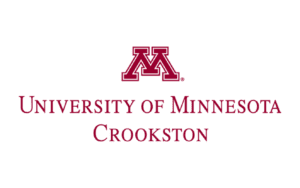
You’ll want to review this 121 credit hour BS in Health Sciences degree if you’re looking for a pre-professional undergraduate health degree.
General education studies will include biology, social sciences, math, communication, humanities, and others. Among the major courses, you’ll take are zoology, organic chemistry, anatomy and physiology, microbiology, abnormal psychology, healthcare law, gerontology, as well as a capstone project. Internships are available in collaboration with local educational centers. There are also opportunities to work with research faculty in the Undergraduate Research Opportunity Program (UROP).
First-year students, don’t need SAT/ACT scores for admission. The university reviews your overall GPA, your experiences (clubs, community involvement, awards, etc.), letter of recommendation, and your answer to short essay questions.
Degree Awarded: BSHS
Learn more about the bachelor of science in Health Sciences!
13. College of Idaho
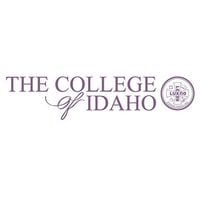
Located in Caldwell, Idaho, this college supports a BS in Health Sciences that offers a Biomedical Science major and two minors in Health Promotion or Psychology and Health.
This degree has a liberal arts foundation intended to prepare you for a variety of health professions, ranging from wellness, health promotion, or more traditional healthcare professions. The curriculum includes classroom studies in biology, chemistry, physiology, and others. You’ll also have the opportunity to participate in a capstone project and have a laboratory, off-campus study, and internships.
The College of Idaho also uses a holistic approach to admission, looking at your accomplishments, letters of recommendation, academic transcripts, as well as writing abilities.
Degree Awarded: BSHS
Learn more about the bachelor of science in Health Sciences!
14. DePaul University
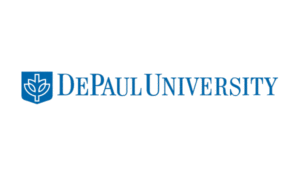
You can pick between concentrations in Public Health or Bioscience with Chicago’s DePaul University four-year BS in Health Sciences degree. There’s also an Accelerated Bioscience degree available, enabling you to earn your BS and MS in a shorter time period.
The Bioscience specialty will give you a solid pre-professional program if you plan to continue on to a pharmacy, medical, physical therapy, or dentistry degree. If you choose the Public Health concentration, you’ll be qualified for an entry-level career in community and public health, health communication, or healthcare administration.
You’ll take general education courses and core health science courses in general biology, health research, public health, and a capstone project. An ethics course is also part of the core requirements. Each concentration requires you select one track (i.e., Bioscience concentration, you’ll have the option of a general track, Lab Investigations, Medical, or Pre-Nursing). The Public Health concentration focuses on population health and social sciences.
The degree is offered through the College of Science and Health, which reports the rates of graduates working in their chosen field is in the up 90 percentile.
Degree Awarded: BSHS or BSHS/MSHS
Learn more about the bachelor of science in Health Sciences!
15. Florida Agricultural and Mechanical University

Florida Agricultural and Mechanical University is a nationally recognized Historically Black College and University (HBCU) and has a recently created Division of Health Sciences. The division offers non-clinical Health Science General (HSG), Pre-Physical Therapy (HS Pre-PT), or Pre-Occupational Therapy (HS Pre-OT) degrees.
Each degree track requires 120 credit hours for completion. The curricula for each track naturally varies, but prepare you for work and influence the wellness of families, communities or individuals. You may want to explore the HSG, HS Pre-OT, and HS Pre-PT curricula to help you make a decision.
First-year admission requires academic transcripts, a 3.0 GPA, SAT/ACT scores, a 500-word essay, and letters of recommendation. If you’re a transfer student, you’ll need to submit academic transcripts from all schools attended, and provide SAT/ACT scores, along with other university documents.
Degree Awarded: BSHS
Learn more about this bachelor of science in Health Sciences!
16. York College/CUNY
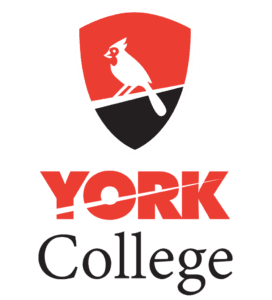
York College is part of the City University of New York (CUNY) and has a BS in Health Science degree requiring 120 credit hours.
This program is designed to prepare you for a variety of healthcare careers or serve as a pre-professional degree. You’ll be introduced to a range for healthcare subjects including quality management, health data, information technology, and biomedical science. The curriculum also includes field experiences.
You can choose from Clinical Laboratory Science, Gerontological Studies and Services, Community Health Education, and Health Promotion Management.
Admission requires university application, academic transcripts, SAT/ACT scores, and other supporting materials (letters of recommendation, essays, etc.).
Degree Awarded: BSHS
Learn more about the Bachelor of science in Health Science!
17. Fort Hays State University

The BS in Health Studies at Fort Hays State University is offered online and is a degree completion program designed for clinical health professionals with an associate degree or diploma. The 120-credit hour program accepts up to 30 transfer credits.
Besides the general education coursework, you’ll complete the health science core courses in topics such as nutrition, medical terminology, global health, epidemiology in public health, and more. You can choose from five concentrations in Leadership, Grant Writing and Entrepreneurship, Health Promotion, Gerontology, and Sociology of Medicine and Aging. Each concentration requires 12 credit hours.
Fort Hays State University is continually recognized as an educational leader. Niche names it a “Top Public Universities in America” and a “Best Online Colleges in America.” U.S. News and World Report ranks FHSU one of the “Best Online Bachelor’s Programs.”
Degree Awarded: BSHS
Learn more about the bachelor of science in Health Science!
18. Rhode Island College
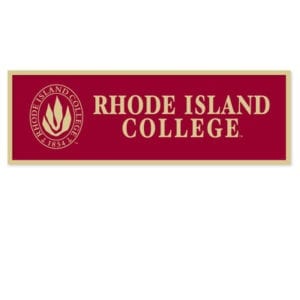
You can choose from four concentrations and completions with this BS in Health Sciences degree.
The health science degree program is administrated through Rhode Island College’s Biology Departments and offers Dental Hygiene Completion, Respiratory Therapy Completion, Human Services Concentration, and Medical Laboratory Concentration.
The degree calls for 120 credit hours and includes general education classes. All concentrations include core courses in math, health education, psychology, sociology, chemistry, biology, as well as philosophy. Once you complete this multidisciplinary degree, you’ll be well-prepared for an entry-level career in Human Services.
Admission is uncomplicated and requires an application, a 250-word essay, academic transcripts (and guidance counselor recommendation), and SAT/ACT scores.
Degree Awarded: BSHS
Learn more about this bachelor of science in Health Science!
19. University of Michigan Flint
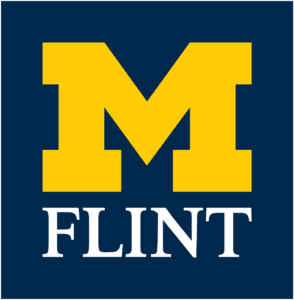
This BS in Public Health Sciences degree is offered through the School of Public Health and examines public health issues through a clinical or science viewpoint.
The health science degree uses a liberal arts approach and will prepare you for entry-level careers in public health and also provides a framework for graduate work in healthcare professions.
Among the topics you’ll study are infectious diseases, environmental and biological origins of disease, prevention strategies, and disease management. Additionally, students learn public health methodology which includes epidemiology, and surveillance.
Degree Awarded: BSHS
Learn more about the bachelor of science in Health Science!
20. Cleveland State University
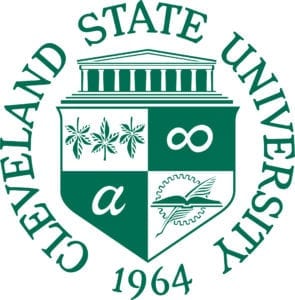
Whether you looking for a pre-professional program, want to be a health educator working with individuals or communities, or work as a non-clinical allied health professional, Cleveland State University has a BS in Health Sciences that will get you there. The undergraduate degree requires 120 credit hours.
You’ll have six concentrations available to you: Associates Degree Completion, General Interest, Pre-Physician Assistant, Pre-Occupational Therapy, Health Promotion, or Pre-Physical Therapy. If you’re anxious to begin your career, the university has an Accelerated 4+1 program that will allow you to gain your bachelor’s and master’s degrees in as few as five years with a BS/MS in Health Sciences or BS/MS in Public Health.
CSU’s focus is on Engaged Learning and supports experiential learning options, co-ops, as well as internships.
Degree Offered: BSHS
Learn more about the bachelor of science in Health Science!
21. Columbus State University
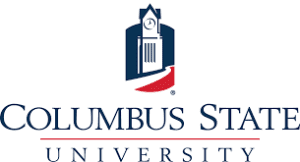
If you want a program that will provide you with the basis for a wide range of health science careers, you should look at the BSHS at Columbus State University.
This degree program concentrates on the role of public health professionals and training in educational program development, implementation, and analysis. Besides the general education courses, you’ll study topics in anatomy and physiology, nutrition, research methods, consumer health, statistics, behavioral issues, school health, grant writing, and an internship.
After graduating, the school encourages students to pursue a health education certificate (CHES) through the National Commission for Health Education Credentialing. This program prepares you for various allied health careers ranging from clinical to non-clinical professions.
Degree Awarded: BSHS
Learn more about the Bachelor of science in Health Science!
22. Wilmington University

Located in Delaware, Wilmington University offers a BSHS degree on-campus or 100% online. Whether you’re a first-time student or want to complete your degree (up to 90 transfer credits accepted), this program provides the groundwork for a healthcare career. Additionally, there’s an accelerated BS/MS degree in Health Care Administration which allows you to take graduate coursework while completing your undergraduate degree.
The curriculum covers core science classes in biology, anatomy, microbiology, etc., and general education courses. Other core studies include ethics, legal aspects of healthcare, leadership, evidence-based research, as well as a capstone project, and additional classes. You can also take certificate courses as electives.
Admission isn’t complex and requires an application, academic transcripts, as well as an immunization record. You’ll need to complete a background check and drug screen.
Degree Awarded: BSHS or BSHS/MSHS
Learn more about the bachelor of science in Health Science!
23. Drake University
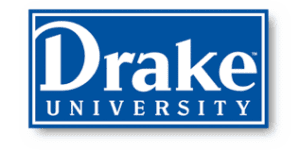
The BSHS degree through Drake University’s College of Pharmacy and Health Sciences offers two tracks in Clinical and Applied Sciences and Health Services Management.
If you’re planning on an advanced health science program (medicine, dentistry, physician assistant, etc.), you’ll want to check out the Clinical and Applied Sciences track. This track will present you with research opportunities working with research faculty and clinical experiences. Drake offers a Three to a Health Sciences degree option which, while rigorous, will let you complete the four year program in three years.
The Health Services Management track prepares you for a role in healthcare administration. Or graduates work in healthcare industries such as insurance, marketing, and public health. You have the opportunity with this track to pursue “3 + 2” dual degrees. You can choose to combine your degree with law, Master of Public Administration (MPA) or MBA. If your goal is more administrative, there’s a combined BSHS degree with a Master of Healthcare Administration (MHA) or Master of Public Health (MPH). These last two dual degrees are a collaboration between Drake University and Des Moines University.
Degree Awarded: BSHS, BSHS/MHA, BSHS/MPH, BSHS/JD, BSHS/MPA, BSHS/MPH
Learn more about these bachelor of science in Health Science degrees!
24. Advent Health University
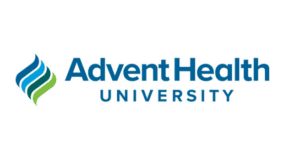
You’ll be able to choose between two BSHS tracks with this program at AHU. Both tracks require 124 credit hours of study, with 63 of those hours in general education courses.
Each track includes studies in the US Health Care System, Healthcare Management, as well as Legal Aspects of Healthcare.
The Science Track curriculum is a pre-professional path if you’re interested in post-graduate work in a healthcare field. Among the major subjects in this track are anatomy and physiology, exercise physiology, immunology, general biology, microbiology, chemistry, general physics (the last four subjects require labs). This track includes an internship.
If you have an associate’s degree in a clinical related major, you’ll want to look at the Allied Health Track. The didactic and clinical courses taken in the associate degree will satisfy the 17 credit hours of Allied Health coursework required for this track.
General admission to this program requires a 2.70 GPA and academic transcripts. You’ll need to have an interview with an Enrollment Counselor and apply for financial aid.
Degree Awarded: BSHS
Learn more about the bachelor of science in Health Science!
25. Sacred Heart University
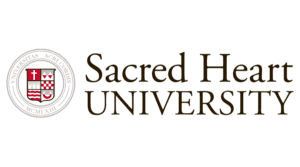
Sacred Heart University has four BSHS degree tracks in Healthcare Administration, Radiologic Science (for students with an associate degree), Global Health, and Public Health.
Additionally, there are “3+2” accelerated health science degree programs if you’re looking for a BS/MS in Occupational Therapy or in Public Health.
The university describes the BSHS program as providing instruction in current healthcare policies, delivery, ethics, legal issues, health information technology, and enhancing leadership skills. An undergraduate degree from Sacred Heart University requires 120 credit hours and the school accepts up to 66 transfer credits (from community colleges) and 90 credit hours from a four-year institution.
Degree Awarded: BSHS and BSHS/MSHS
Learn more about the Bachelor of Science in Health Science!
What Are Some Careers in Health Sciences?
The best colleges for health science degrees offer professionals a path to get ahead in a fast-growing, high-paying career in allied health. A Bachelor of Science in Health Sciences (BSHS) can prepare you to enter the rapidly growing healthcare field. Whether you’re wanting to work in the allied health field or are interested in a pre-professional health degree, you’ll want to explore health science degree programs.
Health Sciences may be one of the most versatile undergraduate degrees if you want to enter the healthcare field. The degree can prepare you to work as an allied health professional or serve as a foundation for pre-professional studies.
There are several allied health professions ranging from clinical to non-clinical roles. This list is certainly not exhaustive but will give you an idea of the myriad of careers available for BSHS/BAHS-prepared students.
On the clinical side, a BSHS can help you become a technician specializing in areas like:
- cardiovascular
- anesthesia
- surgery
- medical lab
- pharmacy
- audiology
Certain therapy professions are enhanced with an undergraduate degree, including respiratory, occupational or physical therapy assistants, or radiology.
Non-clinical careers include:
- health information technology
- cancer registrar
- healthcare administration
- medical coders
- human services
- community public health educators
- patient advocates
The U.S. Bureau of Labor Statistics reports a general 14% job growth between 2018-2028 in the healthcare field which is significantly higher than other professions. Salaries (according to PayScale) can range from $45,000-$98,000 depending on specialty.
Highest-Paying Health Sciences Bachelor’s Jobs
| Job | Salary |
|---|---|
| Medical and Health Services Manager | $119,840 |
| Radiation Therapist | $94,000 |
| Dental Hygienist | $81,360 |
How Do I Choose the Best Colleges for Health Science Degrees?
There are several factors to consider when choosing a college. In the case of Health Sciences, it will depend on what you want to do.
Most Health Sciences programs are interdisciplinary in design. You’ll take a variety of general education courses, core science courses, and courses in a certain specialty. Look for schools that offer you options in concentrations in the Health Sciences major.
For example, if you want to work in healthcare administration, look for a BSHS that offers concentration coursework in healthcare finance, ethics, accounting, Human Resources, organizational development, etc.
If you know you want to go to medical school, you should find a program that offers pre-professional coursework. You’ll want courses that include anatomy and physiology, general chemistry, biology, and microbiology, research methods, statistics, and more.
Health Sciences Accreditation
Another consideration in choosing a school is accreditation. Be sure the school you choose has accreditation from a regional accrediting agency such as the Higher Learning Commission (HLC) or Southern Association of Colleges and Schools (SACS) and others. Accreditation assures you the college or university meets certain educational standards.
Don’t forget the cost. Tuition is always a consideration, but be certain to apply for Federal Student Aid. Many schools will require you to apply for federal assistance as part of the admission process.
Is Health Science a Good Major?
An undergraduate degree in Health Science is a versatile major if you want to work in healthcare. Furthermore, a degree from one of the best colleges for health science can prepare you for clinical or non-clinical professions.
A BSHS/BAHS includes a variety of disciplines including the natural and applied sciences, social sciences, business, and humanities among them. The degree can prepare you for an administrative position, working with patients, or conducting research. Graduates are also prepared for graduate-level studies. Some common paths include a Master in Public Health (MPH), a Master in Healthcare Administration (MHA), or a Master’s Degree in Nursing for Informatics (MSN).
Overall, a health sciences degree is a solid framework for diverse employment opportunities. Depending on the specialty, job growth for allied health careers can range from 23-26% over a ten-year period.
Salaries for allied health professionals, as stated above and according to PayScale can range from $45,000-$98,000 depending on specialty and where you live and work.
Methodology Sources:
Our rankings are based on:
- Price – IPEDS
- Accreditation – IPEDS
- Reputation – Niche, U.S. News and World Report
- Salary Potential – College Scorecard
Related:
- 15 Best Online Health Science Bachelor’s Programs
- 10 Fastest Online Health Science Bachelor’s Programs
- 25 Best Health Science Master’s Degrees
- 15 Best Online Health Science Master’s Degree
- 10 Fastest Online Health Science Master’s
- What Can You Do with a Human Service Degree?
- 10 Most Affordable Online Health Sciences Master’s
